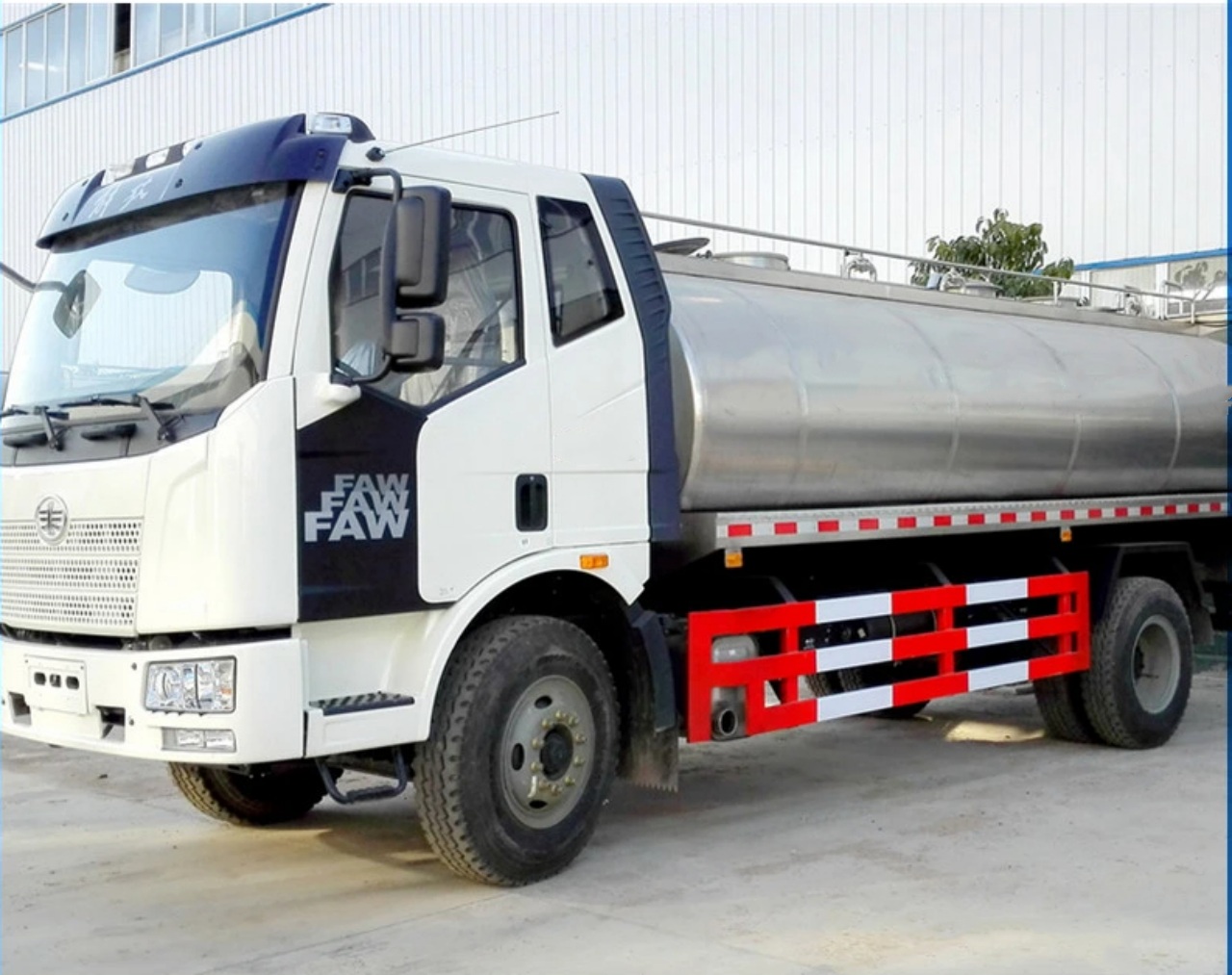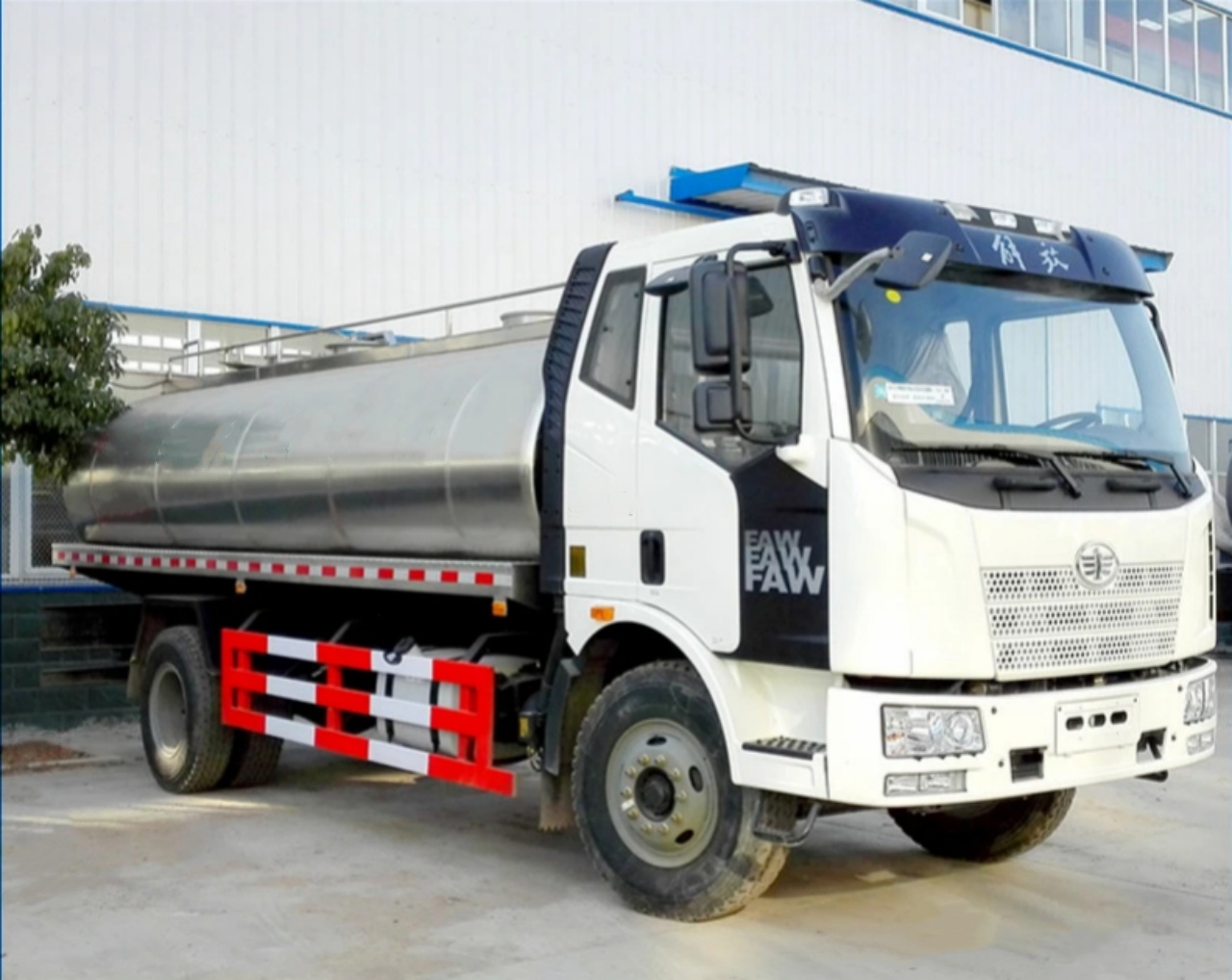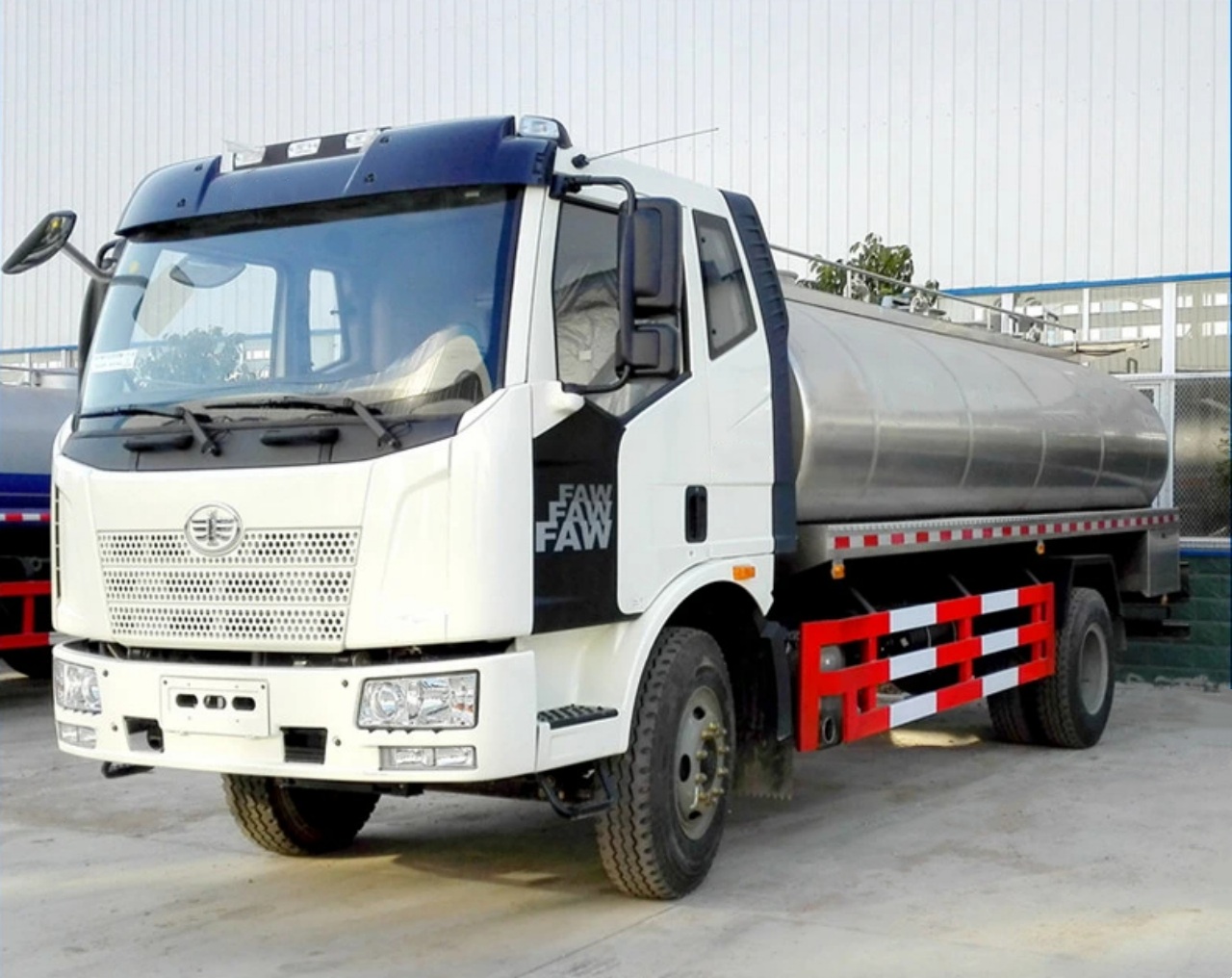Stainless steel tank trucks are a critical component of many industries, providing the means to transport liquid goods ranging from food and beverages to chemicals and petroleum products. These tank trucks are specifically designed to meet the demands of transporting substances that require high levels of hygiene, durability, and resistance to corrosion. As industries that rely on bulk liquid transportation continue to grow, understanding the benefits and maintenance requirements of stainless steel tank trucks becomes essential for operators and fleet managers.
The Basics of Stainless Steel Tank Trucks
A stainless steel tank truck is a heavy-duty vehicle designed to carry large quantities of liquid or semi-liquid materials in an enclosed tank made from stainless steel. These trucks are equipped with tanks of various sizes and configurations, typically ranging from 3,000 to 7,000 gallons, depending on the requirements of the cargo. The tank itself is constructed from stainless steel, a material known for its high strength, corrosion resistance, and ability to withstand a wide range of temperatures and chemical conditions.
Stainless steel tank trucks are commonly used in industries such as food and beverage production, pharmaceuticals, chemicals, and oil and gas. For example, dairy products, edible oils, chemicals, and even fuels can all be transported using these specialized trucks. The material properties of stainless steel make these tanks ideal for such diverse uses, ensuring the integrity and safety of the goods during transit.

Benefits of Stainless Steel Tank Trucks
- Corrosion Resistance
Stainless steel is well-known for its corrosion resistance, even when exposed to harsh chemicals, moisture, and extreme temperatures. This property is particularly beneficial for transporting liquids that may react with other materials, leading to contamination or degradation. For example, food-grade liquids like milk or juices are safely transported in stainless steel tanks without the risk of contamination from rust or corrosion. This durability extends the lifespan of the truck’s tank, making it a cost-effective choice for fleet owners. - Hygienic and Easy to Clean
Hygiene is a crucial consideration in industries like food processing, pharmaceuticals, and beverages. Stainless steel surfaces are smooth and non-porous, which prevents the buildup of bacteria and other pathogens. In addition, stainless steel tanks are relatively easy to clean and sanitize. Cleaning processes such as hot water rinsing, steam cleaning, and chemical sanitization are highly effective, ensuring that the truck’s tank remains safe for transporting food-grade products or chemicals that require high cleanliness standards. - Strength and Durability
Stainless steel is an exceptionally strong material, which makes stainless steel tank trucks highly durable. The strength of stainless steel allows these trucks to carry heavy loads without compromising their structural integrity. In addition to the material’s inherent strength, stainless steel tank trucks are also designed to withstand significant pressure and thermal expansion, making them suitable for transporting substances under various pressure and temperature conditions. - Temperature Control
Many materials transported in tank trucks require temperature control to maintain their quality. Stainless steel tanks can be equipped with insulation or heating systems to regulate the internal temperature of the liquid being transported. This capability is especially important for liquids that are sensitive to temperature fluctuations, such as milk or chemicals. By maintaining the proper temperature, stainless steel tank trucks ensure that the cargo arrives in optimal condition. - Chemical Resistance
In addition to its resistance to corrosion, stainless steel is highly resistant to a wide range of chemicals. This makes it the preferred material for transporting chemicals, solvents, acids, and other industrial liquids that could otherwise degrade the tank material. Unlike other metals or alloys, stainless steel is not easily corroded or weakened by exposure to aggressive chemicals, ensuring the safety and integrity of the cargo during transit. - Longevity and Cost-Effectiveness
The initial cost of stainless steel tank trucks may be higher than that of trucks made from other materials. However, the long-term benefits far outweigh this upfront investment. The corrosion resistance, ease of maintenance, and strength of stainless steel contribute to the overall longevity of the vehicle, reducing the need for frequent repairs or replacements. Over time, this translates into significant cost savings for operators, as they spend less on maintenance and replacement tanks.

Maintenance of Stainless Steel Tank Trucks
To maximize the lifespan and performance of stainless steel tank trucks, proper maintenance is essential. While stainless steel is durable, regular inspections and cleaning are still necessary to ensure optimal performance and safety. Here are the key maintenance tasks for these trucks:
- Routine Inspections
Routine inspections should be conducted to ensure the tank and its components are in good condition. This includes checking for any signs of wear, corrosion, or damage. Special attention should be given to areas like the seals, gaskets, and fittings, which can be prone to wear due to constant use. A professional inspection should also evaluate the overall structural integrity of the tank and assess any potential leaks. - Cleaning and Sanitization
For trucks carrying food-grade or pharmaceutical products, cleaning and sanitization are critical to prevent contamination. The tank should be thoroughly cleaned after each load to remove any residual liquids, debris, or microbial buildup. The cleaning process typically involves the use of hot water, steam, or specialized cleaning agents, followed by a thorough drying process to prevent moisture buildup, which can lead to corrosion or bacterial growth. - Pressure and Temperature Checks
Many stainless steel tank trucks are designed to transport liquids under controlled pressure or temperature conditions. Regular checks of the pressure relief valves, insulation, and temperature control systems are necessary to ensure they function correctly. If the truck has a heating or cooling system, it should be inspected regularly to ensure it is maintaining the proper temperature range for the transported liquid. - Sealing and Gasket Maintenance
Seals and gaskets are crucial for maintaining the integrity of the tank. They prevent leaks and ensure the contents are securely contained during transport. Over time, these components can degrade due to exposure to temperature fluctuations and chemical reactions. Regular inspection and replacement of seals and gaskets are essential to avoid leaks or contamination. - Corrosion Prevention
Although stainless steel is resistant to corrosion, it is not immune to it. Areas exposed to high moisture levels or aggressive chemicals may require additional corrosion prevention measures. Operators can prevent corrosion by ensuring the tank is thoroughly dried after cleaning, storing the truck in a dry, sheltered location, and applying corrosion inhibitors as needed. - Repairs and Replacements
If any parts of the truck, such as the tank, valves, or hoses, are damaged, they should be repaired or replaced immediately to prevent further damage or safety risks. Regular maintenance can help identify small issues before they escalate into costly repairs.

Conclusion
Stainless steel tank trucks are an invaluable asset for industries requiring the safe, efficient, and hygienic transportation of liquids. The material’s inherent benefits—such as corrosion resistance, strength, and ease of cleaning—make these trucks ideal for transporting everything from food-grade liquids to industrial chemicals. However, like all vehicles, stainless steel tank trucks require regular maintenance to ensure their longevity and proper functioning. By adhering to a routine maintenance schedule, fleet managers can maximize the truck’s lifespan, reduce operational costs, and ensure the safe delivery of their cargo.

